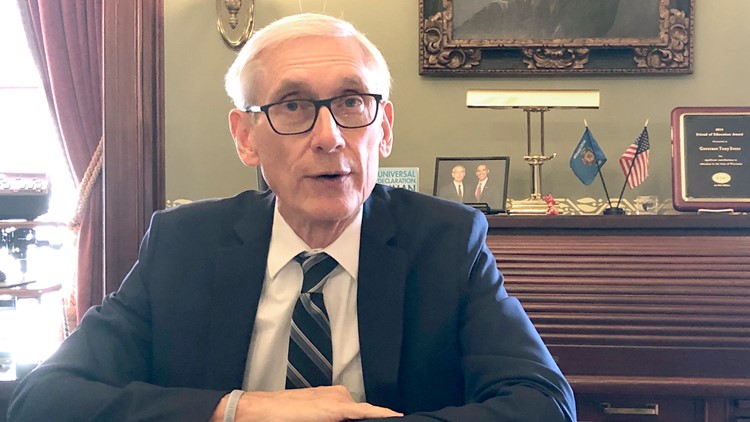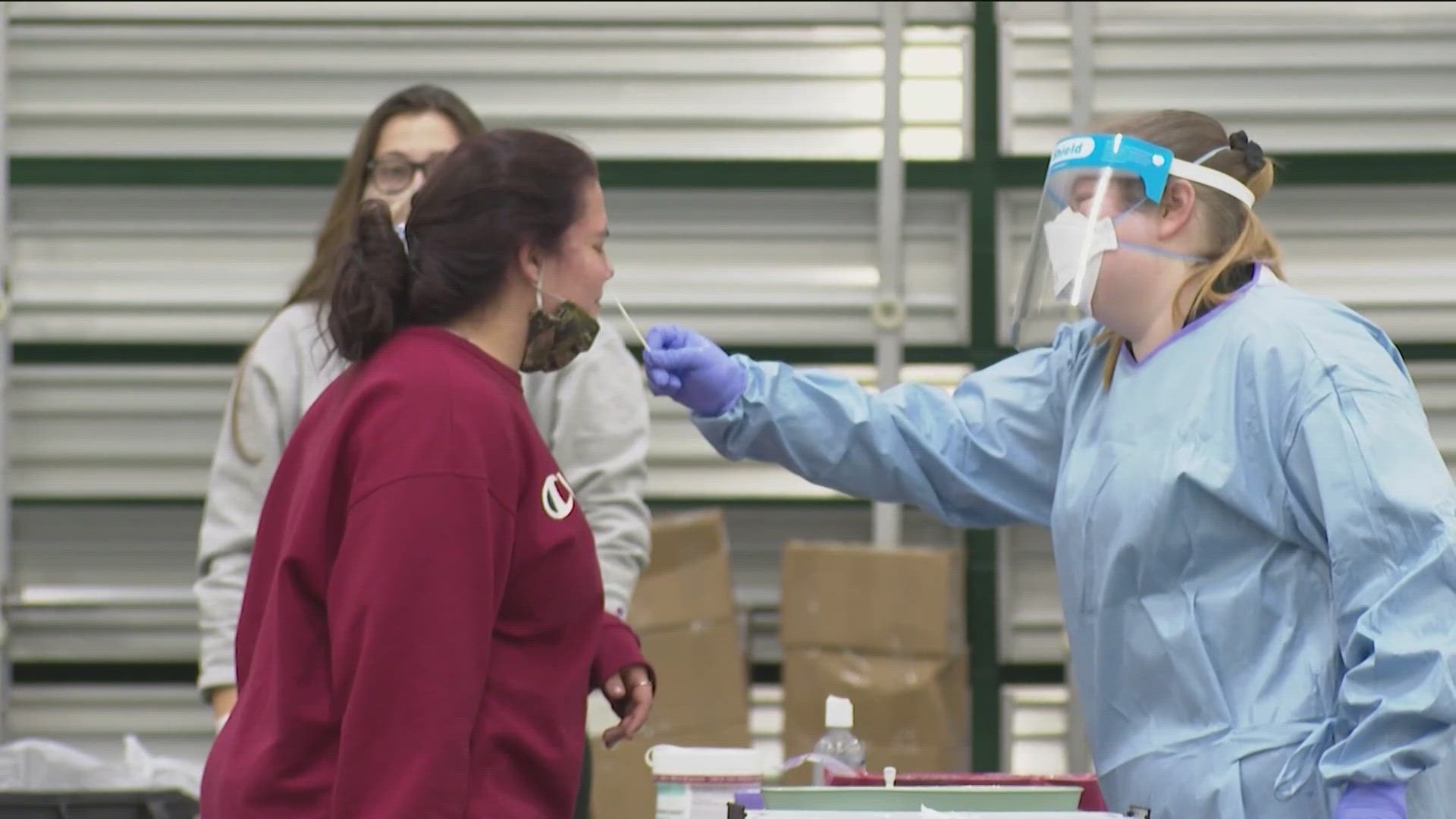MADISON, Wis. — Wisconsin Gov. Tony Evers has officially issued a "safer at home" order across the state to slow the spread of COVID-19.
Coronavirus has killed five people in the state and infected more than 400, as of the Wisconsin Department of Health Services' last update.
The governor has ordered everyone in Wisconsin to stay home except for essential activities and travel. In addition, all non-essential businesses are ordered to close with the exception of what work can be done at home. For anyone who does not have their own residence, the order means they must maintain social distancing of 6 feet from non-family members, as much as possible.
The order also says that all public and private gatherings of any number of people, who are not part of a single household, are prohibited.
The full order, which details what business, activities and travel are considered essential, as well as other exceptions, is available below or online here.
Evers tweeted Monday that he would be signing the “safer-at-home” order on Tuesday. It comes after Evers already ordered K-12 schools and a host of other businesses closed, including bars, restaurants and hair salons, and limited gatherings to no more than 10 people.
But the newer, tighter restriction mirrors what others across the world and U.S., including neighboring Illinois, have done to try and force people not to leave their homes or interact with others unless absolutely necessary.
Those who provide essential care and services, such as doctors, nurses and other in the health care industry, grocers and family caregivers will be granted an exemption, Evers said. But everyone else should limit their travel to essential needs like getting groceries and medication and going to the doctor, he said.
“If it’s essential for you to go outside, please stay 6 feet away from others and shared spaces such as park shelters and visitor centers,” the governor said.
For most people, the coronavirus causes mild or moderate symptoms, such as fever and cough. For some, especially older adults and people with existing health problems, it can cause more severe illness, including pneumonia.
Evers said he came to the "Safer at Home" decision after talking with public health experts, businesses leaders and local elected officials across state.
“Overwhelmingly the response I heard is that we need an all-hands-on-deck approach to stopping the spread of COVID-19 in Wisconsin,” Evers said. “In fact, business leaders have suggested that it is imperative to slow the growth of the disease and that the state cease all non-essential business statewide. And, folks, all hands on deck means you, too.”
Evers on Friday had said he didn’t think an order essentially telling people to shelter in place would be necessary in Wisconsin. The governor reversed field on Monday, saying that while he didn’t think he would have to do it, “folks need to start taking this seriously.”
“People across our state are still out and about unnecessarily that are putting our friends, our neighbors, and our communities at risk,” he said. The new “safer-at-home” order means "no sleepovers, no play dates, and no dinner parties with friends and neighbors,” he said.
The goal is to slow the spread of the disease so there isn’t a surge in patients that overwhelms hospitals and health care workers.
Also on Tuesday, the state Department of Corrections said a second worker in a Wisconsin prison tested positive for the virus. The latest positive test was at the Columbia Correctional Institution in Portage. It comes after a doctor at the Waupun Correctional Institution tested positive last month. Both prisons are maximum security.
Inmate advocacy groups, fearful of an outbreak of the virus behind bars, have been urging Evers to make a series of sweeping changes to protect inmates, including letter older ones go free.
Evers on Saturday froze new admissions to the state prisons, saying inmates will have to continue to be housed in county jail cells.
In other developments, jury trials in Wisconsin have been postponed until at least the end of May and in-person court proceedings have been suspending statewide through at least the end of April.
Meanwhile, citing an increased risk of exposure, the city of Milwaukee has ended in-person early voting ahead of Wisconsin's April 7 presidential primary and spriong election, but is still accepting absentee ballots by mail. The city said its Election Commission can no longer maintain sufficient staffing levels to keep the three early voting sites operating safely.
KARE 11’s coverage of the coronavirus is rooted in Facts, not Fear. Visit kare11.com/coronavirus for comprehensive coverage, find out what you need to know about the Midwest specifically, learn more about the symptoms, and keep tabs on the cases around the world here. Have a question? Text it to us at 763-797-7215. And get the latest coronavirus updates sent right to your inbox every morning. Subscribe to the KARE 11 Sunrise newsletter here. Help local families in need: www.kare11.com/give11.
The state of Minnesota has set up a hotline for general questions about coronavirus at 651-201-3920 or 1-800-657-3903, available 7 a.m. to 7 p.m.



